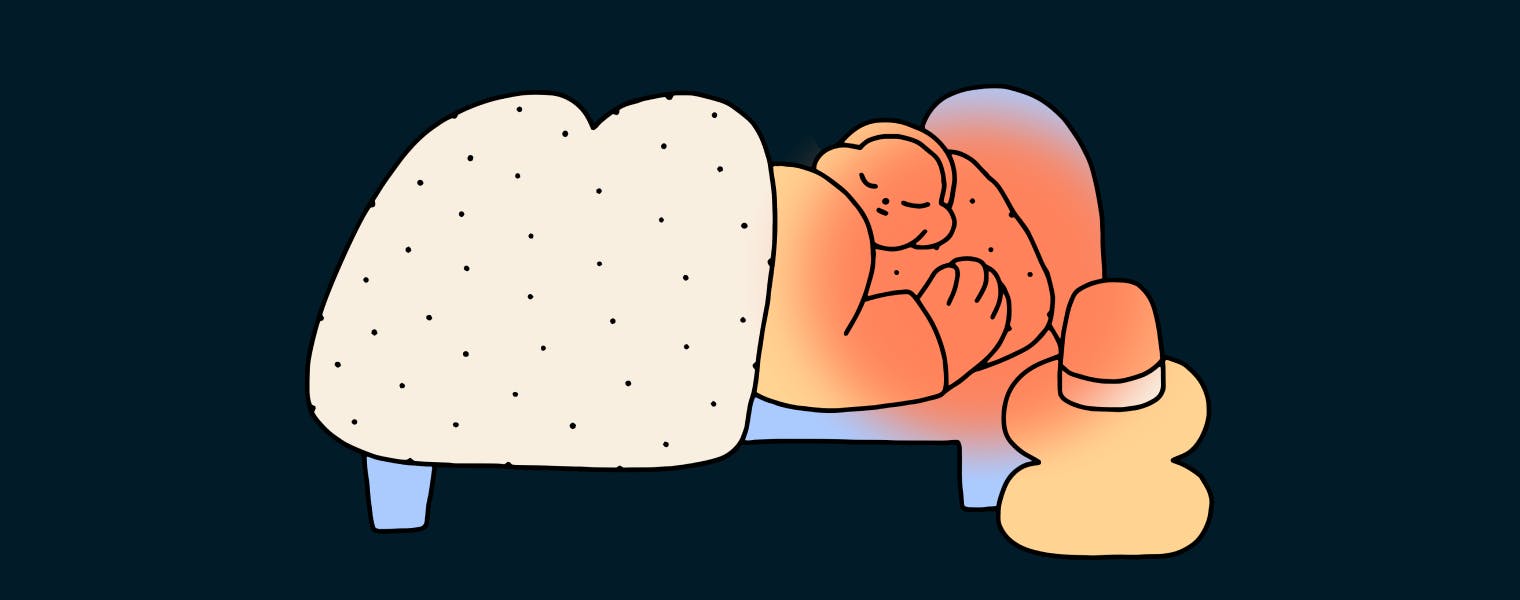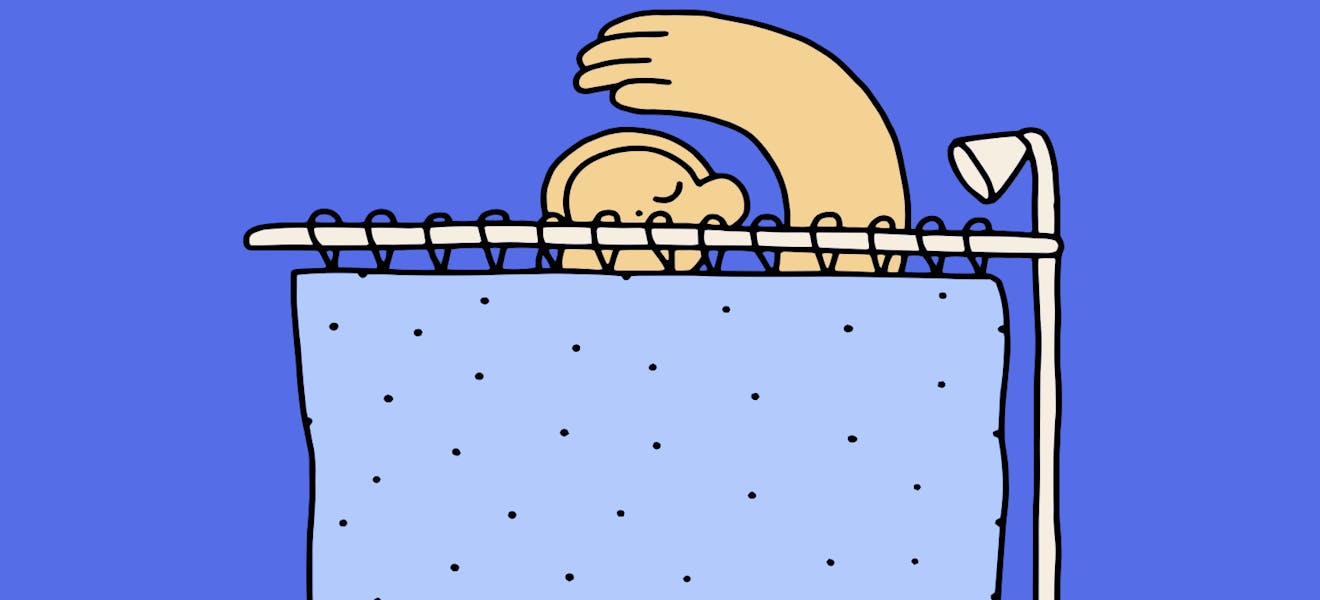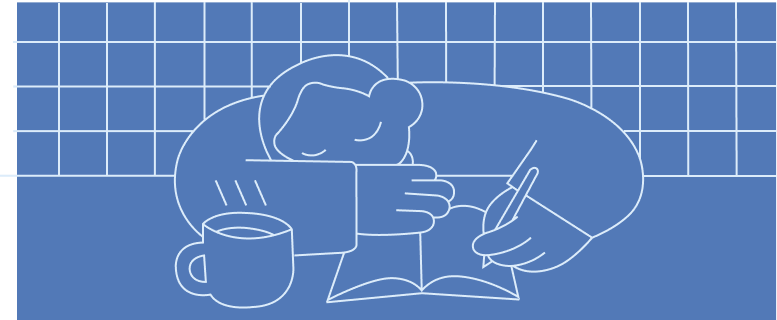How to Go To Sleep Earlier
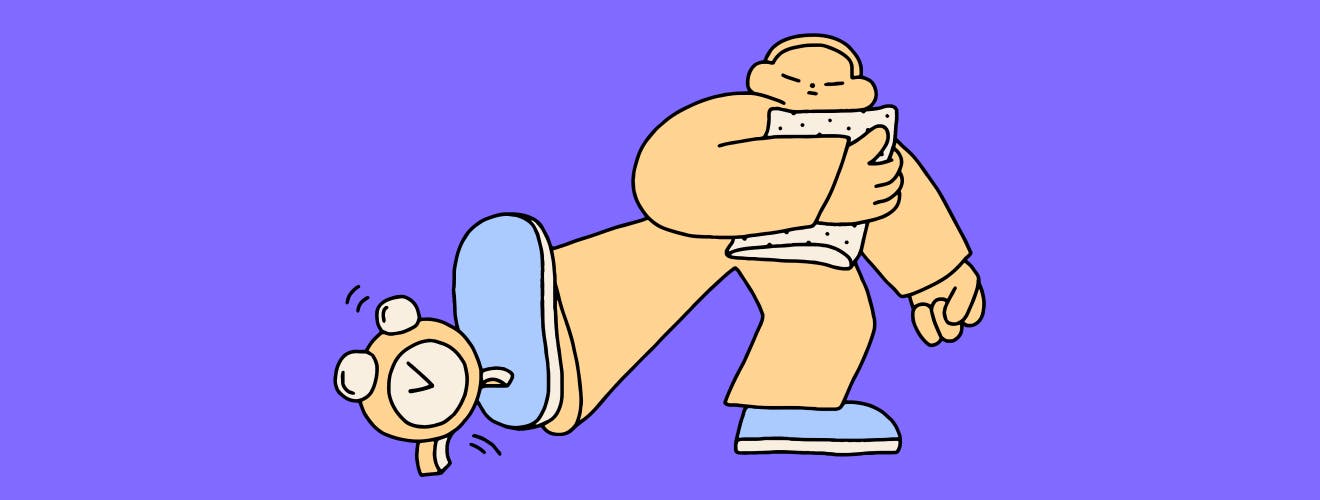
Sleep procrastination is when you fall asleep later than intended without any good reason for doing so. After the pandemic, a new term emerged: revenge bedtime procrastination. This refers to when you stay up later to participate in activities you couldn't complete during the day. Turns out, people with demanding work schedules are most likely to fall victim to this phenomenon.
17 Hacks on How to Go To Bed Earlier
No matter the reason you're having a hard time getting to bed early, there is a way around it. Here are a few things that will help you get to bed early and wake up refreshed.
1. Cut out caffeine
Though caffeine can be administered as a calming agent, it's almost always used as a stimulant. Drinking too much coffee can keep you from going to sleep and keep you from waking up in the morning, so you may want to avoid ordering coffee so close to bedtime.
2. Create a bedtime plan and stick to it
Having a bedtime routine reminds you that it's time to get into bed, get comfortable, and try to fall asleep. Try to start winding down around an hour or two before bed. If you find yourself getting easily distracted, turn off the TV, put down your phone, and close your laptop or tablet. This will give you enough time to unwind and fall asleep more easily.
3. Meditate before sleep
Meditation is a great way to relax and destress and can help patients with insomnia. Try meditating for 15-20 minutes every day before you go to bed to help yourself with relaxing and clearing your mind of thoughts that may be keeping you up at night.
4. Keep your bedroom as dark as possible.
Cut down onlight exposure by lowering the wattage on your lights and keeping light-emitting gadgets like your phone and TV in another room. Try using a sleep mask to block out any stray light, too.
5. Exercise during the day
Exercise is a great way to burn off stress. It's also great for getting in some extra Z's. This doesn't mean you need to go for a 5-mile jog in the middle of your workday, but try reducing screen time and doing some stretches or physical activity instead.
6. Keep your room cold
To get quality sleep, try keeping your room on the cool side. Of course, you don't want to get too extreme. Make sure the thermostat doesn't drop below 60 degrees Fahrenheit. A cool, soothingbedroom environment helps to relax you before sleep. This can also make it easier to avoid sleep distractions like watching TV or listening to music and focus on falling asleep.
7. Don't eat heavy meals before you get to bed
Don't eat heavy meals when it's close to bedtime. Try to eat light and healthy dinners and avoid unhealthy foods like sugar and salt. These foods can increase your energy and cause gastrointestinal disturbances, causing you to stay awake at night.
8. Keep your bedroom quiet
White noise can help you drift off to sleep faster. Try gentle, steady sounds on your phone, laptop, TV, or any other devices in the room.
9. Get a comfortable mattress
Researchers agree that sleeping on a comfortable mattress can improve sleep quality. Try reading about different mattresses, ask your friends or family members about theirs, and do some research online to find out what works well for you.
10. Take deep breaths
Our nervous system calms down when we take deep breaths. By practicing deep breaths in the morning when you wake up, we can expect to relax throughout the day and have an easier time falling asleep at night.
11. Don't stress
Stress also affects our sleep quality. It's best to try and keep your stress levels low before bed in order to fall asleep. Try exercising every day, meditating for 15-20 minutes every day, and monitoring the things that are bothering you so that they don't cause anxiety at night.
12. Take a shower
Cooling down our body temperature helps us sleep better, especially when we're hot. Try taking a shower in the evening before bed. Whether you take a cold or warm shower depends on you, both have benefits that may help you fall asleep easier. Just consider the climate, and which one will make you more comfortable.
13. Try the military method
If you can't fall asleep because your mind keeps racing, try going to sleep at the same time every day. Start getting into bed earlier than usual to give your body a little extra time to wind down.
14. Avoid alcohol
You may feel like alcohol is helping you fall asleep, but it's not. While alcohol may have sedative properties that help you relax, research has shown that people who go to bed with alcohol in their system usually find it harder to fall asleep.
15. Visualize
Visualization is a powerful meditation tool that can help you get quality sleep. When it's time to sleep, try imagining yourself in a relaxing, peaceful environment. Imagine the sights, smells, and sounds around you. This will calm the body down and allow the mind to more easily drift off to sleep.
16. Get enough sunlight
While it's important to get plenty of sleep every night, it's also important to get up and around during the day. Try to get 30 minutes of sunlight every day. This will help your body adjust its internal clock and get to bed earlier at night.
17. Try a Natural Sleep Aid
Natural sleep aids like those offered by Sandland Sleep can contribute to naturally deeper, longer REM sleep cycles. Their ingredients are plant-based, and non-habit forming, meaning you won't get the same kinds of morning-after effects that typically accompany prescription medications.
Why Are Sleep Schedules Important?
According to the National Sleep Foundation, there are two main goals when it comes to sleeping, to stay asleep and to feel rested. Sleeping too much or too little can mess with your ability to feel rested in the morning, which can then impact your energy and mood. It's important to set a sleep schedule to help your body stay on track.
When the days get shorter and colder, our sleep schedules tend to get confused. We want to stay as active as possible, so we stay up later. As a result, our bodies have a hard time going to sleep at night and we get less sleep each night.
Getting to sleep at the same time every night helps your body adjust your circadian rhythm so it knows when it's time to sleep, and when it's time to wake up.
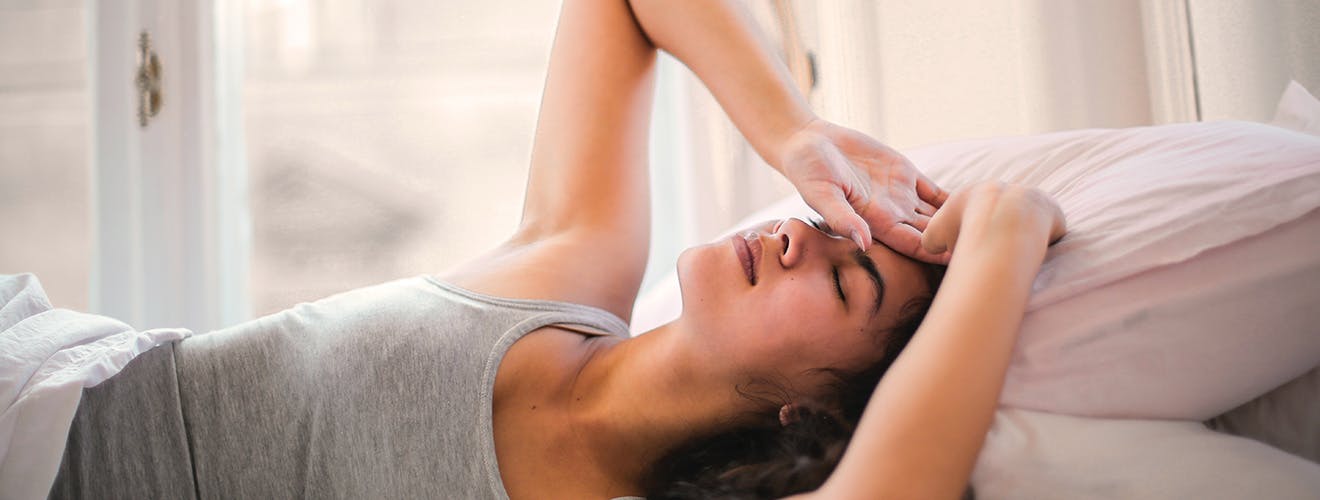
At the end of the day...
we're all a little different and we all require different approaches for getting to bed earlier. That said, most issues can be resolved by enforcing different behaviors. Keep an eye out for things you may be doing that are impacting your ability to fall asleep early and adjust accordingly. Set a bedtime, stick to it, and avoid practices that can keep you awake.
There are lots of suggestions out there to help you fall asleep faster. You can begin by making your bedroom sleep-friendly, avoiding blue light from your devices, getting regular physical exercise, meditating, taking a warm shower, and cutting out the caffeine. You can also experiment with different natural sleep aids.
Stress, insomnia, internal clocks, and lifestyle can all affect your ability to get to bed on time. Try isolating the problem by eliminating certain behaviors before bed.
It's most areas of the world, it's dark by 8 PM, meaning it's definitely not too early to go to bed. After all, we have a biological tendency to adjust our sleep times based on the rising and setting of the sun. That said, the best time for you to sleep will depend on when you usually wake up in the morning and the amount of sleep you need.
If you find it hard to fall asleep, you can use breathing techniques to help you fall asleep. An easy breathing technique to use is called pranayama.
This is a form of deep breathing where you focus on breathing in for four seconds, holding for eight seconds, and breathing out for four seconds. This slows down your breath for the purpose of relaxing the body
Try to do this exercise in bed. Give yourself a time limit to complete this breathing exercise. Ideally, you want to take a full five minutes and then try to fall asleep.
